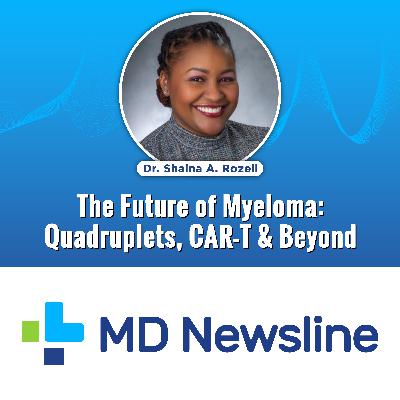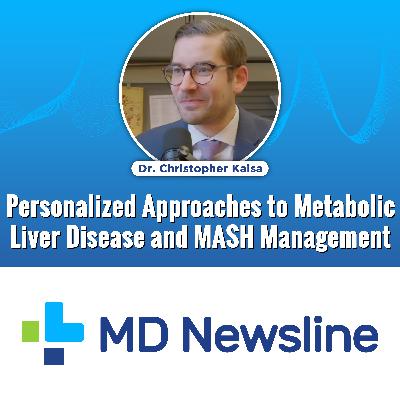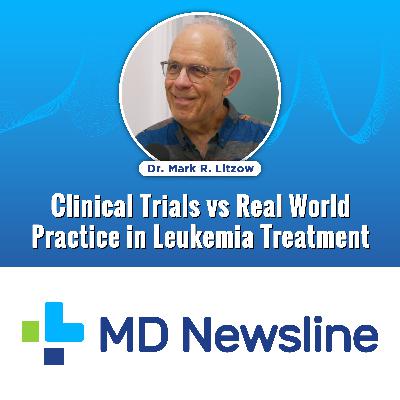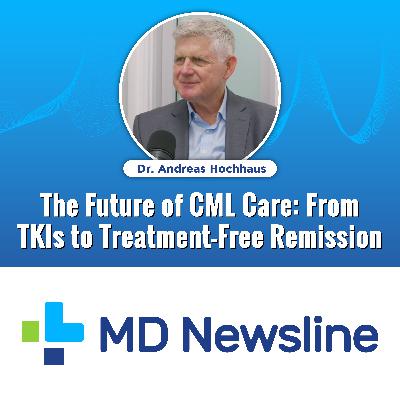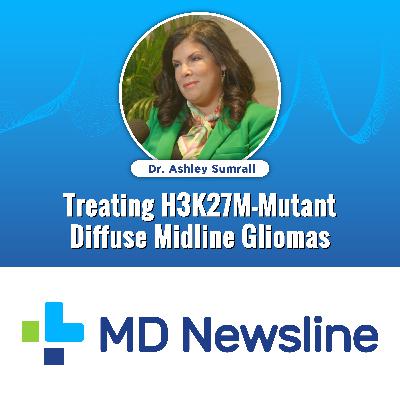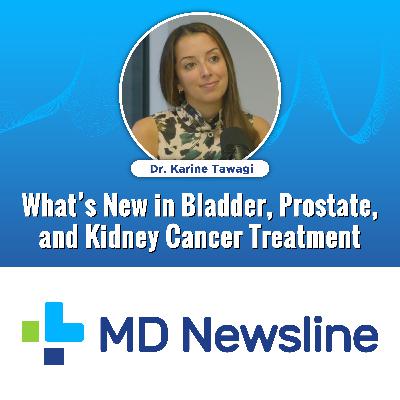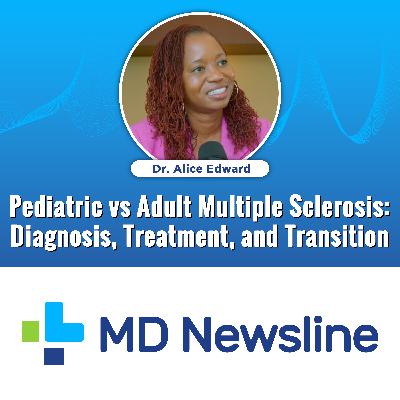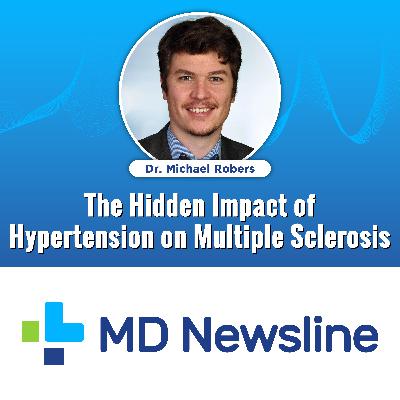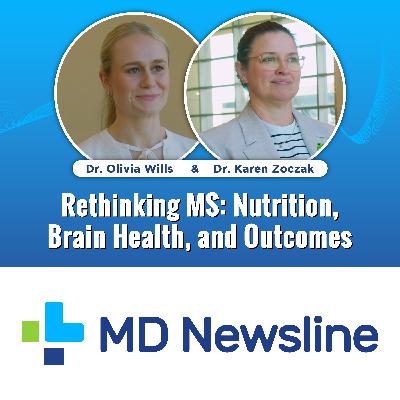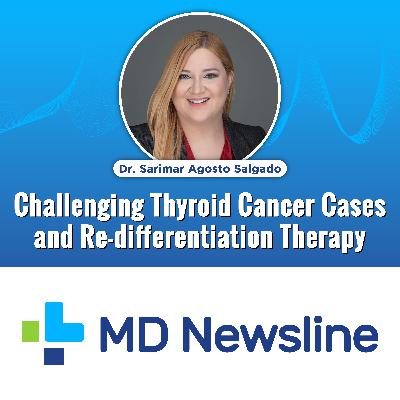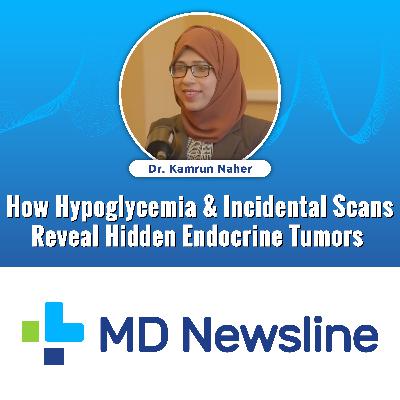What's New in Breast Cancer Treatment?
Description
In this episode of MD Newsline, Dr. Eleonora Teplinksy, a breast and gynecologic medical oncologist at Valley Health System and clinical assistant professor at the Icahn School of Medicine at Mount Sinai, shares key updates from the ASCO annual meeting. She discusses transformative clinical trials that are reshaping the landscape of metastatic breast cancer treatment across subtypes including hormone receptor-positive, HER2-positive, and triple-negative breast cancer.
Dr. Teplinksy highlights the promise of early mutation detection, the potential of antibody-drug conjugates, and the power of liquid biopsies. She also addresses pressing concerns around clinical trial diversity, treatment access, and the need for multidisciplinary care.
Episode Highlights:
Early Detection in HR+ Breast Cancer: The SERENA-6 Trial
The SERENA-6 trial investigates whether switching to camizestrant—an oral SERD—upon early ESR1 mutation detection via liquid biopsy (before radiographic progression) improves progression-free survival. The study showed a 56% reduction in disease progression risk. However, issues around FDA approval, cost, testing frequency, and racial representation remain key concerns.
Advancing Triple-Negative Breast Cancer Care: ASCENT-04
The ASCENT-04 trial evaluates sacituzumab govitecan plus pembrolizumab vs. standard chemo-immunotherapy in PD-L1+ patients. Results revealed improved PFS (7.8 to 11.2 months), showing promise for first-line triple-negative treatment, though insurance coverage may delay clinical implementation.
HER2+ Breast Cancer Innovation: DESTINY-Breast09
This trial demonstrated that combining T-DXd with pertuzumab improved PFS from 26.9 to 40 months, suggesting a new standard for HER2+ metastatic breast cancer. Still, side effects like interstitial lung disease and lack of clarity on endocrine therapy integration must be addressed.
Real-World Barriers: Cost, Toxicity, and Care Access
Dr. Teplinksy emphasizes challenges patients face—from time toxicity to insurance denials—and calls for thoughtful side-effect management and patient-centered treatment planning.
Multidisciplinary Collaboration and Future of AI in Oncology
She underlines the role of interdisciplinary care and the need to bridge gaps across specialties. With AI and machine learning emerging, Dr. Teplinksy envisions more tailored treatments driven by biomarkers and real-world insights.
Key Takeaway
Dr. Teplinksy stresses the importance of early intervention, clinical trial equity, and multidisciplinary care in improving breast cancer outcomes. As the field embraces antibody-drug conjugates and AI-driven personalization, collaboration and access must evolve in step.
Resources
Website: https://mdnewsline.com/
Newsletter: https://mdnewsline.com/subscribe/
Connect with Dr. Eleonora Teplinksy: Here


